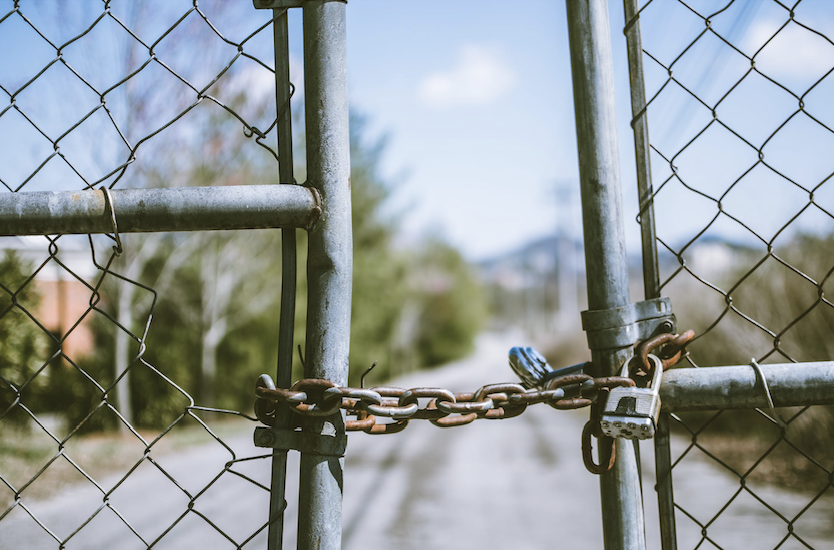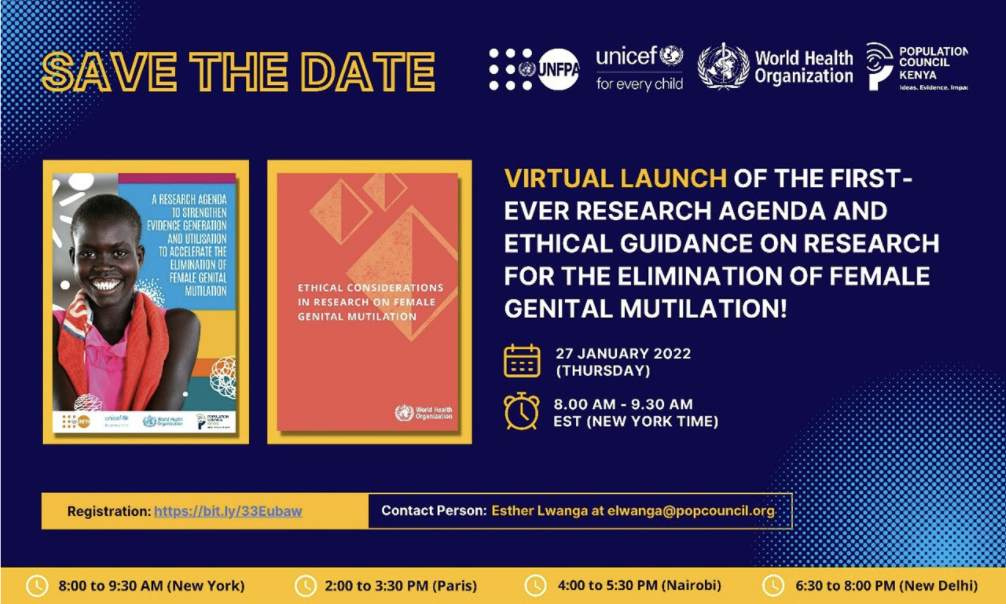Why are Indian ethics committees still hesitant to approve studies on FGM/C?

By Dr. Alifya In the past year, while making arduous efforts to obtain ethical approval for my research, I have come to understand the answer I was continuously receiving. “No.” My colleague and I, both doctors, sought out to survey Indian healthcare workers on their knowledge, attitudes, and practices about female genital mutilation or cutting (FGM/C). This simple cross-sectional study involved a questionnaire being sent out to Indian healthcare professionals via Google forms. It did not involve speaking to FGM/C survivors or providing any type of intervention; it simply served as a survey-based study to understand what Indian healthcare workers already knew or didn’t know about FGM/C. However, in trying to obtain ethical approval, we encountered unanticipated challenges. Being a healthcare worker and a survivor of FGM/C, I was searching for ways I could contribute to ending this practice. In our curriculum, there was not even a single mention of FGM/C. If a healthcare practitioner is unaware about the problem, how can they treat and assist? Healthcare professionals play a significant role in the prevention of FGM/C and can support and educate patients and communities about the advantages of ending the practice. Since very little research has been done in India on this topic thus far, I believed this would be a good starting point to pave the way for more research on FGM/C. Data from this research would also help create further awareness among healthcare workers. My colleague and I enthusiastically approached my father’s acquaintance, a gynecologist, with this idea. However, he attempted to dissuade us instead of guiding us. He claimed no one would discuss this subject; “Why not try something less contentious and simple?” Though discouraged, we weren’t prepared to give up. Next, we approached several committees in Mumbai for ethical clearance, including the ethics committee of our respective places of employment. However, no one responded. We eventually changed our jobs and approached these new institutes as well. Unfortunately, we got a similar response. “The topic is too sensitive. Try something simple.” Our research which started in Mumbai turned out to be extremely challenging. We met many people who loved the idea and were ready to guide us and be a participant in the research. However, they were not ready to publicly attach their or their institute’s name to it. After so many unsuccessful attempts, we decided to approach our parent institute, from where we graduated, in a small town in Maharashtra. Not many were aware of the practice. Despite this, we talked to our professors, and they were happy to assist us. The head of the ethics committee was eager to help us out as well, until she sat down and read our proposal. To our dismay, she echoed what we had been hearing for so long. “This topic is too sensitive. We cannot attach our institute’s name to it.” We have approached several committees over the past year and met with people who discouraged us, scared us, or pushed us into doing something else. But we are not giving up yet. We have emailed several independent committees all over India and are waiting for a response. Hopefully, someone will be able to help us. This journey has been challenging and difficult, but it has given us courage to keep finding new ways and not to give up. On our journey, we met a lot of new, encouraging, and supportive people. We are hopeful that some years down the line, the current situation will change. Becoming involved in this research and working to make changes has helped me emotionally deal with having had FGM/C. September 28, 2022 Update: I’m really happy to share the wonderful news that, finally, a Hyderabad-based independent committee has given its approval to our research. We found this independent committee through a business named Quinary Research Pvt Ltd. Though they had certain reservations, such as not including religion and naming Bohras as a practicing community, they were not as opposed to our research topic because we only included healthcare professionals and utilized a standardized World Health Organization (WHO) questionnaire. The fact that this independent committee lacked knowledge about the practice of FGM/C, and that it occured in India, is the major reason we believe they were willing to let us conduct the research; this lack of knowledge only goes to show how crucial conducting this study on healthcare providers’ knowledge on FGM/C is. We still have a lot of work ahead of us, but we have a start. Sahiyo has agreed to assist us with our project by providing funds and advice. We are grateful beyond words for Sahiyo’s unwavering support and encouragement in our work to end FGM/C.
Being a researcher: Finding balance

By Huda Syyed The biggest challenge of being a researcher is to be impartial during the data collection process. However, for the researcher, conducting any area of research will come with some personal sentiment or perception regarding that topic. Oftentimes the researcher has to sit and contemplate how they will approach the subject despite their personal bias or opinions. I felt a surge of overwhelming feelings and thoughts when I embarked on learning more about female genital cutting (FGC) in Pakistan. A few questions that ran through my mind were: Is it ok for me to pursue this research as an outsider to the community who has not experienced FGC? I wondered if it was an intrusive decision to choose FGC as my research topic because I am not part of the community that practices it. My uncertainity and discomfort felt heavy, but also important to address before I started the data collection process. Reading and learning about FGC from books, journals, and audio-visual sources seemed like the easy part. However, when I got closer to the data collection process which involved surveying and interviewing women who underwent FGC, I felt the need to reflect upon these questions, because I wanted to ensure I was not crossing any boundaries that could cause them harm. When I realized that there is a dearth of data on FGC in Pakistan, I determined that by collecting more data, I could help build a more thorough understanding of the practice and its contextual continuation. In turn, what I found could help explain the way that communities function and whether culture or religion play a role in practices like FGC. Once it was clear as to why I was pursuing this research, I felt some relief. How can I make my paritcipants feel safe and comfortable while they share their thoughts and experiences with me? With qualitative methodologies, and especially interview formats, the interviewer must be mindful of ethical guidelines. The World Health Organization (WHO) recently launched its first ethical guidance on how to conduct research on FGC, titled Ethical considerations in research on female genital mutilation, for this purpose. It is imperative that researchers stick to these guidelines to avoid any conflict or trauma for the participants. One of the main principles of the WHO’s ethical considerations is respect for persons, which states that consent and informed understanding of the research are important elements to the ethical conduct of research. It is necessary that the researcher informs the participant about the research and only continues data collection upon their willingness. Once the researcher has familiarized themselves with the ethical guidelines and questions, they must approach participants in a non-imposing and thoughtful manner. The researcher’s demeanour must reflect that the participant has absolute free will to interject or walk away from the interview; the participant must know that they have the option to discontinue the interview without the fear of any consequences. Comfort, willingness, and the well-being of a participant should be of the utmost importance to the researcher. How can I deal with panic associated with the responsibility to have zero margin of error? Every researcher aims to produce reliable and error-free research. It is great to pursue research with a spirit of wanting to do your best, however researchers should also practice compassion and kindness towards themselves. It is easy to get carried away with the aim for perfection, and I think it is better to replace that feeling with self-kindness and appreciation for whatever you may have achieved within a day. But how does one deal with the panic of these responsibilities? I think it is helpful to reach out to other researchers and discuss your concerns, fears, and anxieties. By speaking to other research students and mentors, I realized that it is quite normal to feel this fear and panic. However, managing it in a consistent and healthy way is key to producing good research and retaining one’s sanity. This is why I made it a point to spend more time with my dogs and family to relieve stress levels. I also pursued hobbies that helped take my mind off research for a while. These small changes in my lifestyle helped me approach my research in a responsible, mindful, and revived manner. Afterall, balance is everything. About Huda Syyed: Huda Syyed is currently a Research Student at Charles Darwin University. Her research topic focuses on female genital cutting and explores an understanding of the practice and its lack of visibility in Pakistan. In the past, she acquired a Master’s degree in International Relations from Queen Mary University (London) and worked in the non-profit sector on UN Women projects that dealt with gender-based violence. She has been a research assistant and writer for a few projects and was also visiting faculty at Bahria University, where she taught ‘International Organizations’ at undergraduate level. She writes news and opinion pieces on topics related to gender and society for local and digital newspapers. Learn more about Huda’s research here.
An FGC researcher’s reflection on the first-ever Research Agenda and Ethical Guidance on Research for the Elimination of Female Genital Mutilation

By Hunter Kessous In my sophomore year of college, I decided to conduct research analyzing the knowledge, attitudes, and training of community health workers who work to end FGC. In the early stages of my research project, I held interviews with many wonderful leaders of organizations working to end female genital cutting (FGC). I also asked for their assistance in sharing a survey with community health workers within and outside their organization. In one interview, a leader asked me very directly “Why should we do all this work?” It was a valid question; I was requesting their incredibly valuable time and resources. Why should they take time to participate in my research specifically when there is so much important work to be done? Last week, I attended a webinar that answered her question better than I ever could have. The event was hosted by the UNFPA, UNICEF, WHO, and the Population Council, Kenya. These organizations collaborated to launch two exciting new documents: the first-ever Research Agenda To Accelerate the Elimination of Female Genital Mutilation and Ethical Considersations in Research on Female Genital Mutilation. An opening statement by Nankali Maksud, UNICEF Senior Advisor, described perfectly why these documents are so needed. Every year, at least four million girls are at risk of undergoing FGC. The COVID-19 pandemic has added an additional two million cases to this figure, which otherwise would have been averted. In order to end FGC by 2030, progress needs to be 10 times faster. To achieve this goal, the work to end FGC must be based on high quality evidence, which requires 1) asking the right questions and 2) ethical guidance, both of which are addressed in these documents. To date, research on FGC prevention and elimination has been limited. The research agenda was created by performing a literature review and developing a list of questions to explore the gaps in our current knowledge. The list is very comprehensive, and the authors even ranked the questions by priority so researchers can clearly see what needs to be addressed most urgently. The document calls on researchers to ask important questions, the top priority being: “How can healthcare providers and the health system be effectively utilised in the prevention of FGM and the provision of services to women and girls affected by FGM?” The complete list of 78 research questions is broken down into thematic areas, including Enabling Legal and Policy Frameworks, FGC in Conflict and Crisis Settings, and more. The guidelines for ethical considerations when conducting research on FGC includes checklists for each step of the research process to ensure that the rights of participants are prioritized and respected at all times. The document also emphasized the importance of engaging with the community early to ensure that research will make a contribution to the health and well-being of the population. This part is essential. Research is not done simply for the sake of running numbers or getting published—research is only as useful as the extent to which it can guide policies and interventions. We must make sure research is relevant in order to end FGC. As an FGC researcher myself, I wish these comprehensive guides existed when I began my project, but this will not stop me from using them going forward. I am excited for the future of research under the guidance of these resources. It’s inspiring and hopeful to see multiple organizations come together to support the importance of evidence-based approaches to end FGC.
Reflecting on the launch of the first-ever Research Agenda and Ethical Guidance on Research for the Elimination of Female Genital Mutilation

By Ellen Ince On January 27th, I attended the virtual launch of the first-ever Global Research Agenda on the Elimination of Female Genital Mutilation (FGM) and the launch of Ethical Considerations in Research on Female Genital Mutilation. This online event, hosted by UNFPA, UNICEF, WHO, and the Population Council, Kenya. I immediately felt the buzz of excitement surrounding the launch. It is clear that the Research Agenda will be a critical resource in acting against female genital cutting/mutilation (FGM/C). As panelist Nankali Maksud put it, ‘this is just the beginning. Today is the beginning of a great day but it is not the end of this story.’ She reminded the audience that 4 million girls are at risk of FGM/C every year, and that progress needs to be 10x faster if we are to achieve the UN Sustainable Development Goal of ending FGM/C before 2030. The Research Agenda pinpoints refined research questions and highlights research gaps to bolster progress as we make our way towards that 2030 goal. Research outcomes will then provide evidence to policy makers, with the aim of encouraging them to take action. What struck me the most is the emphasis on community engagement and involvement of survivors as key to finding ethical solutions, which is something so central to Sahiyo’s mission as an organization. Panelist Dr. Dennis Matanda provided an overview of the research agenda and talked about the process of identifying research priorities. Of the research questions identified, I found the following two questions very thought-provoking: What intervention approaches are effective in preventing FGM across countries that border each other? FGM is not an individual or community issue. It is global. Sahiyo believes that FGM/C is a social norm with a variety of justifications for why it is carried out. To tackle FGM/C as a women’s rights issue, we must remain optimistic that social norms, while complex, can change. It must become a social norm for women’s consent to be as highly valued as men’s. Transforming attitudes concerning FGM/C in a way that is compatible with and sensitive to local culture is fundamental in achieving change. Sahiyo advocates for change whilst respecting other cultures. How can men and/or boys be effectively engaged as allies of gender equality and ending FGM? Sahiyo also includes male allies through their Bhaiyo program to take part in action to end FGM/C. Male input is crucial for gender equality to be achieved. They have an important role in promoting women’s rights and their independence. Without their support, gender equality is not possible. For those who are interested, Sahiyo is launching a new campaign, “Each One, Reach Bhaiyo” with the goal of engaging men in dialogue around female genital cutting. Please keep an eye out on our social media or email programscoordinator@sahiyo.com to learn more! You can find the other research questions here. With the Research Agenda identifying research gaps, the Ethical Guidance on Research serves as its companion. The Guidance sets out how to obtain high quality data whilst respecting key ethical principles such as respect for human dignity, autonomy, truth, justice and beneficence. Ethical Guidance is of utmost importance for sensitive topics such as FGM/C. I particularly appreciated the focus on support for the wellbeing of participants and researchers, as well as consent for individual interviews and focus group discussions. The document itself is structured around 3 stages of research: the study design, study implementation, and data analysis and dissemination. You can read the full document here. I found the panel discussion to be dynamic and informative, in which panelist Salma Abou Hussein spoke about driving change on the ground and Professor Mamadou Balde covered the ethical dilemmas that researchers are likely to face. Dr. Samuel Kimani from ACCAF (Africa Coordinating Centre for Abandonment of FGM/C) emphasised the importance for researchers to bridge the gap between evidence and action, arguing that behind the numbers there are women and girls. Their experience and feelings deserve explicit attention and should be translated into interventions and actions within their communities. This point made me reflect on the role we can all play in ending FGM/C. It was inspiring to see so many youth activists and students present on the call, taking a firm stance against FGM/C. Young people’s voices are being heard around the globe, giving them power to become drivers of change. I am sure these students found the webinar as enlightening and insightful as I did. This event, and its outputs, mark a major advancement in our work to end FGM/C.
